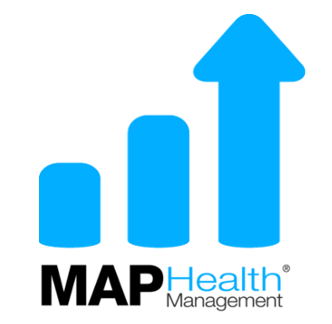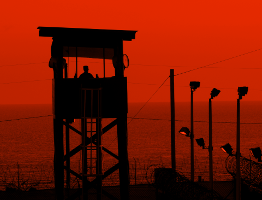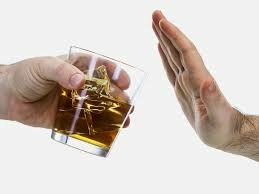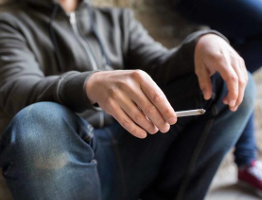The Lost Face Of Addiction
February 20, 2017 Patty V. Pavkovich

Family members were saying:
- "How can she live like that?"
- "Doesn't she see that her life is a mess?"
- “Why won’t she just quit drinking?”
She passed away from her alcohol use at age 54. This broken woman was my sister, two years younger than me. We could have gone to treatment together, if I could have been honest with myself. Yet, I was in the throes of addiction too. I had convinced myself that my life was not such a mess as hers. I did not have cirrhosis, and my friends and family had no idea I was struggling in any way. I thought I had it under control.
A common symptom had contributed to both my sister and I staying stuck in our addiction. That symptom was lack of knowledge of what addiction is in the first place, and the stigma surrounding it in our society.
Addiction is NOT a choice
Addiction is a chronic brain disease. We CAN’T just quit or control it! It is not that easy! Addiction takes over our bodies and our minds completely. We are powerless, and our lives become unmanageable. The ultimate sacrifice can be our death as a result of this disease.
In recovery, we learn about our addiction for what it truly is and what it is not. It is a chronic brain disease. It is not a lack, or absence, of a moral compass in us. It is not a simple choice of quitting that we stubbornly refuse to make. And, it is most certainly not underdeveloped will power. Society and individuals often assume addiction is caused by these characteristics. This stigma of addiction, or lost face amongst our peers, further isolates people from getting treatment and compounds the shame, disgrace, and guilt they already feel.
Addiction is not a choice, it is biology and genetics. The gray brain matter of people in addiction is different. The lack of knowledge surrounding addiction in our society, and the true cause of it, creates an atmosphere of detachment and isolation for those suffering from the disease. People in addiction are often devalued, rejected, and considered untrustworthy and weak individuals lacking in character.
In reality, people living with addiction, treated or not, are just like everyone else. Intelligent, highly functioning members of society, holding jobs, pursuing goals, and raising children. They are just doing all of these things while also living with a chronic disease. Believe it or not, they are not the unlovable criminals and miscreants that society often believes them to be.
Connection helps, judgment hurts
Society has invented all sorts of pejorative terms and labels for people in addiction such as "junkie", "wino", "crackhead", "addict", “lush”, “boozer”, “alky”, and “dope fiend”. These incredibly negative terms deny the dignity and humanity of a person living in addiction, or more suitable referred to as a substance use disorder. Whether it’s your friend, family member, or a complete stranger, remember that these terms only serve to hurt them and never help.
Due to the overwhelming lack of understanding of what addiction truly is, society and individuals often consciously, or unconsciously, detach themselves from people in addiction, isolating them, and often judging them for their affliction. This can and does prevent the individual from seeking proper treatment and care. This type of callous behavior and judgement often drives individuals with a substance use disorder to hide it from family, co-workers, and friends. It greatly affects their self-esteem and self-worth, and can also affect their mental health. This seeming refusal of society at large to ignore the true nature of the disease of addiction can further cause individuals who suffer to internalize the negativity surrounding them. True recovery from addiction is recognizing and providing the need for CONNECTION, not isolation.
Fortunately, knowledge of addiction itself and understanding the true etiology of addiction is coming to the forefront. One such organization striving to recognize the face of addiction is SAMHSA.
The Substance Abuse and Mental Health Services Administration is the agency within the U.S. Department of Health and Human Services that leads public health efforts to advance the behavioral health of the nation. SAMHSA's mission is to reduce the impact of substance abuse and mental illness on America's communities.
Helping those who suffer from Addiction
What else can we do as individuals and as a society to identify the Lost Face of Addiction and assist our friends and loved ones in addiction?
Aside from trying to truly understand the causes and true nature of addiction, and what it means to live with a chronic brain disease, you can also:
- Offer compassionate support, and empathy
- Show kindness to people in vulnerable situations
- Listen without judgment
- See a person for who they are, not what drugs they use
- Educate yourself on drug dependency and SUD
- Treat all people with dignity and respect
- Avoid hurtful labels
- Speak up when you see someone mistreated because of their drug use
- Share your own stories of stigma
We have a long way to go in understanding addiction and those that suffer because of it. Be aware of unusual behaviors, open the door of communication, let people know you care about them, that you believe in them, and help them to get the help that they need. You may be the only one that does, and you may save their life.
Patricia V. Pavkovich works for MAP Health Management as a RSS coordinator, Recovery Support for Origins/Hanley in West Palm Beach, Florida and South Padre Island, Texas. Patricia has a Bachelor of Science in Secondary Health Education and a Doctor of Chiropractic degree. She has two daughters. Patricia ran the Marine Corp Marathon, is a yoga instructor, and enjoys riding her Harley in her spare time. Her sobriety date is March 14, 2014.








